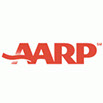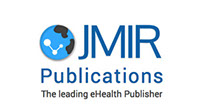
SMALL BRAIN RECORDS
Small Brain is a web based clinical information system. It's a radically different model than first generation EHRs. Our system has been designed to handle complex patients while capturing the most objective data generated during the encounter, all the while reducing time charting.
We have worked with leading information scientists and physicians to create something revolutionary. Check it out for yourself, it's an open source project so if you have the skills we will help you get started. If you need us to do all the tech work we can make that happen too.
Featured in:
Like all great stories it started around a fire. Kevin Perdue and James Ryan were reflecting on the strange state of clinical informations systems and soon began to dream of making something truly cool.
We began by getting help. One of our earliest advisors was Charles Friedman who became our Gandalf, and without his caring support would not have been brave enough to leave the Shire. Here's a link to a video of one of the lectures he invited us to give.
The Thing itself
Small brain records is a problem, task, encounter based system. Its goal is to allow complex patients to be managed safely while ensuring that the data collected during clinical care is accurate and objective.
The system is web based and allows patients and their care team to collaboratively manage their health. Problems can be accessed by patients and physicians, and notes, images, orders and other relevant data can be added or reviewed by both user types.
Tasks are also collaborative, allowing patients and their care team to manage the Todo list, and each Todo provides a space for task specific communication. The system automatically connects the task with the relevant clinical problem, and any clinical encounters it is referenced in.
Encounters are audio recorded, compressed and uploaded all in the browser. The system automatically annotates the audio recording linking the appropriate parts of the encounter to each relevant problem and task. Here are some videos of the system in use.
Human health is difficult to model with a series of static word documents. By providing dynamic modules our system uses the finest techniques to engage the user.
"Futuristic and has great potential... Looking forward to your next iteration." Jiajie Zhang
Learning enabled
The system has been built to learn how I practice medicine, how I heal, how I recommend, how I use the system itself. The the set of actions we as physicians undertakes to care for patients is finite and categorical. We started with a simple ontology for our prototype, and since then have continued to add and sub-categorize. This data set informs the system how I work, both in the context of a particular patient, but also in the context of a particular clinical problem and task. With continued use the system can predict what I will do next as I navigate through it, and so the buttons I click today are teaching the system how to follow and predict me autonomously. This is what you want as a unique clinician.
By starting with the most elemental model of healing we ensure that changes in technology will not disturb the evolution of the system. We tested our model against every recorded instance of the healing act on the planet. You can drop this puppy into the hands of a tech happy shaman in the wild and they will find it as helpful as an urban internal medicine physician.
Clinical data and user actions:
A system that can simultaneously measure and run feedback loops. manual user efforts transferred to machine operations. A learning health system inside a virtual cycle, inside a learning health system.
Open source
The system is AGPL V3. The code is on github. email Jim at ryanjam4@msu.edu for repository access.
We believe that healthcare needs tools to start exploring, and people to explore with. Our hearts and minds are tired of continued steps to maximize profits at the expense of scientific growth and clinical use. Startups promising wonders that don't materialize. The need to explore is a real human desire that when undertaken with love, patience and great advisors can yield a thing that can remedy some of the negative feelings that health care has been plagued with.
Transparent and collaborative
Patient's and their care givers have never had such deep access and privileges to collaborate in their health records. As Glynn Elwin said "it's like Open Notes on steroids". Patients can log in and add problems, add notes to current problems that become part of the legal document, add images, data points and even data types. Tasks, orders, referrals etc. can be discussed in a meaningful way that retains the clinical context. Patients can grant access to family members or other individuals that they trust to help them on the health journey. Encounters are audio recorded and easy to access on most modern devices. Particular discussions can quickly be found in the appropriate problem and easily tagged for quick access. We see our system as the logical conclusion of a patient portal ie. one unified system that enables deep collaboration. Have a look at this video that shows the basic features of the system from the patient's perspective.
FHIR integration
We're still in FHIR prototype mode but getting closer to full FHIR integration. Currently we have three prototype clinical modules built to experiment with modular design {a colon cancer, A1C, and warfarin management application}. These have been guiding our next architectural step toward full FHIR use. We have a FHIR server up and running and will be testing simple data exchange. Ultimately our system can be used as a stand alone, or in concert with other systems.
Advisors
Our current advisors are Charles Friedman , John Beasley, and Timothy Pletcher. We would also not have journeyed this far without the support and guidance of many others, in particular Martin Wehlou, Mark Leavitt, and Josh Mandel.
"very exciting" John Ioannidis
If you are a resident or practicing physician with a passion for designing tools that facilitate care and are interested in beta-testing some of the features of our system, we would love to work with you. Feel free to read our research journal The Digital Transformation of Primary Care.
email me: James Ryan: ryanjam4@msu.edu, or Kevin Perdue: kevin.perdue+smallbrain@gmail.com






